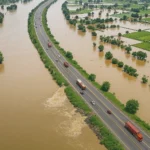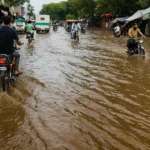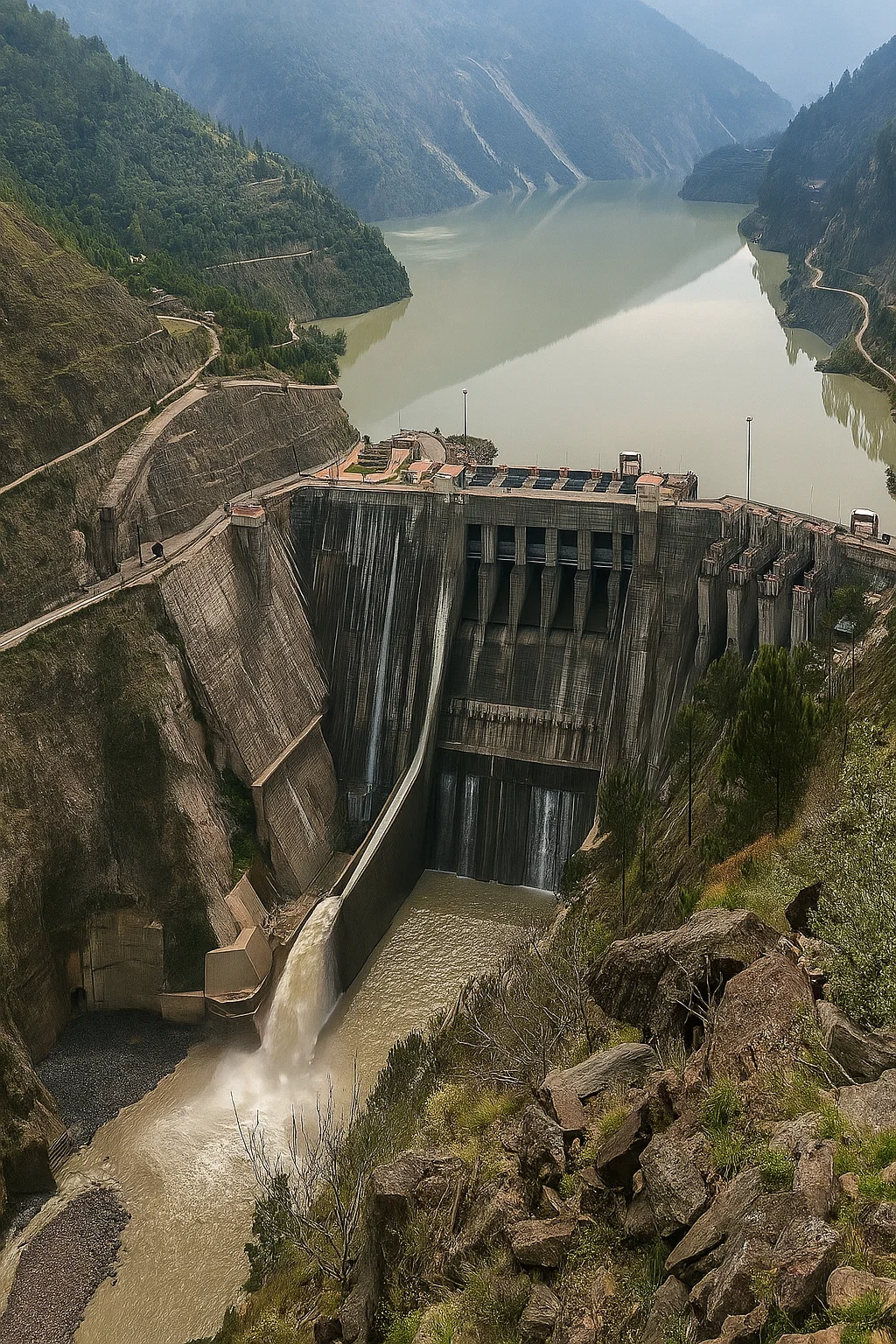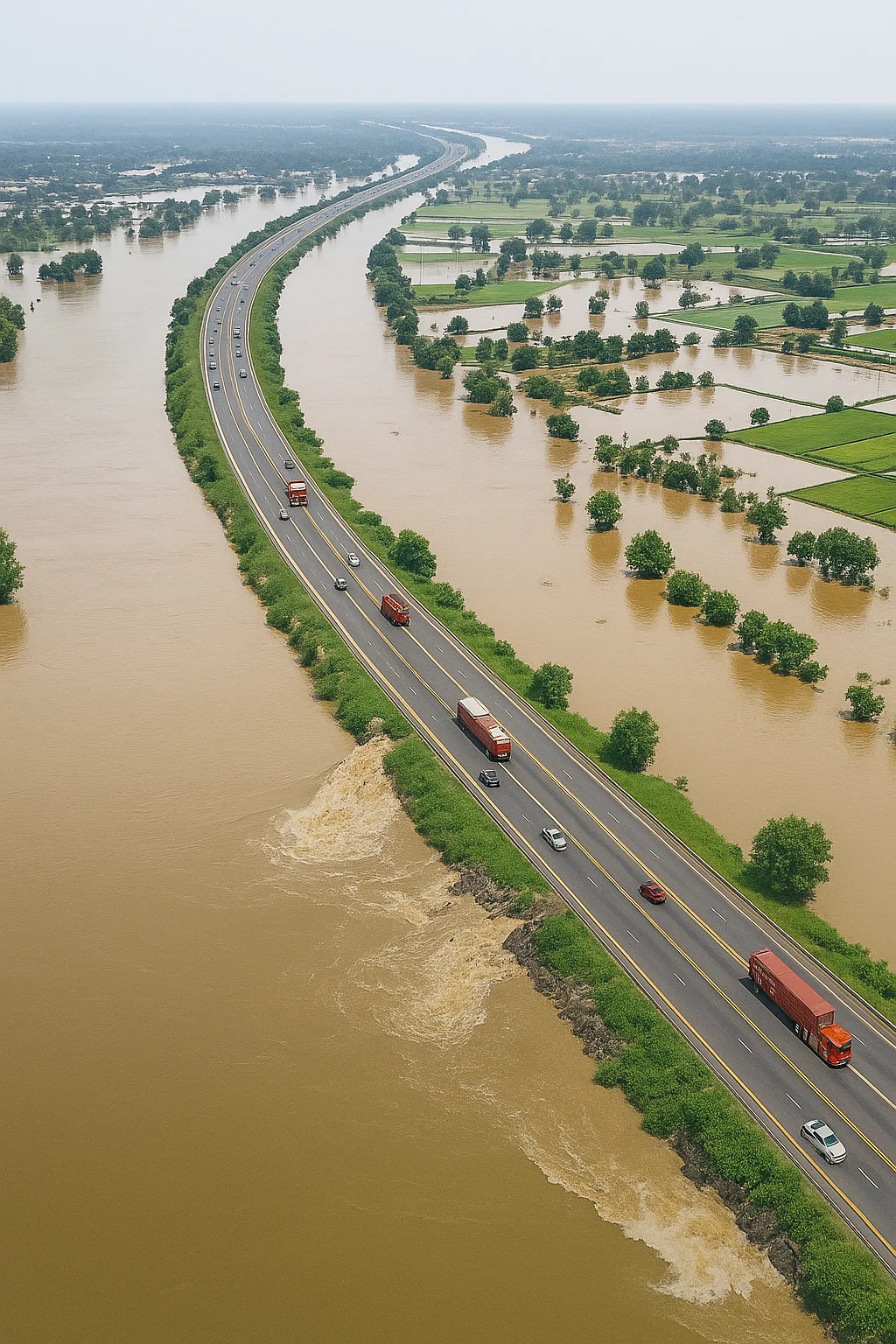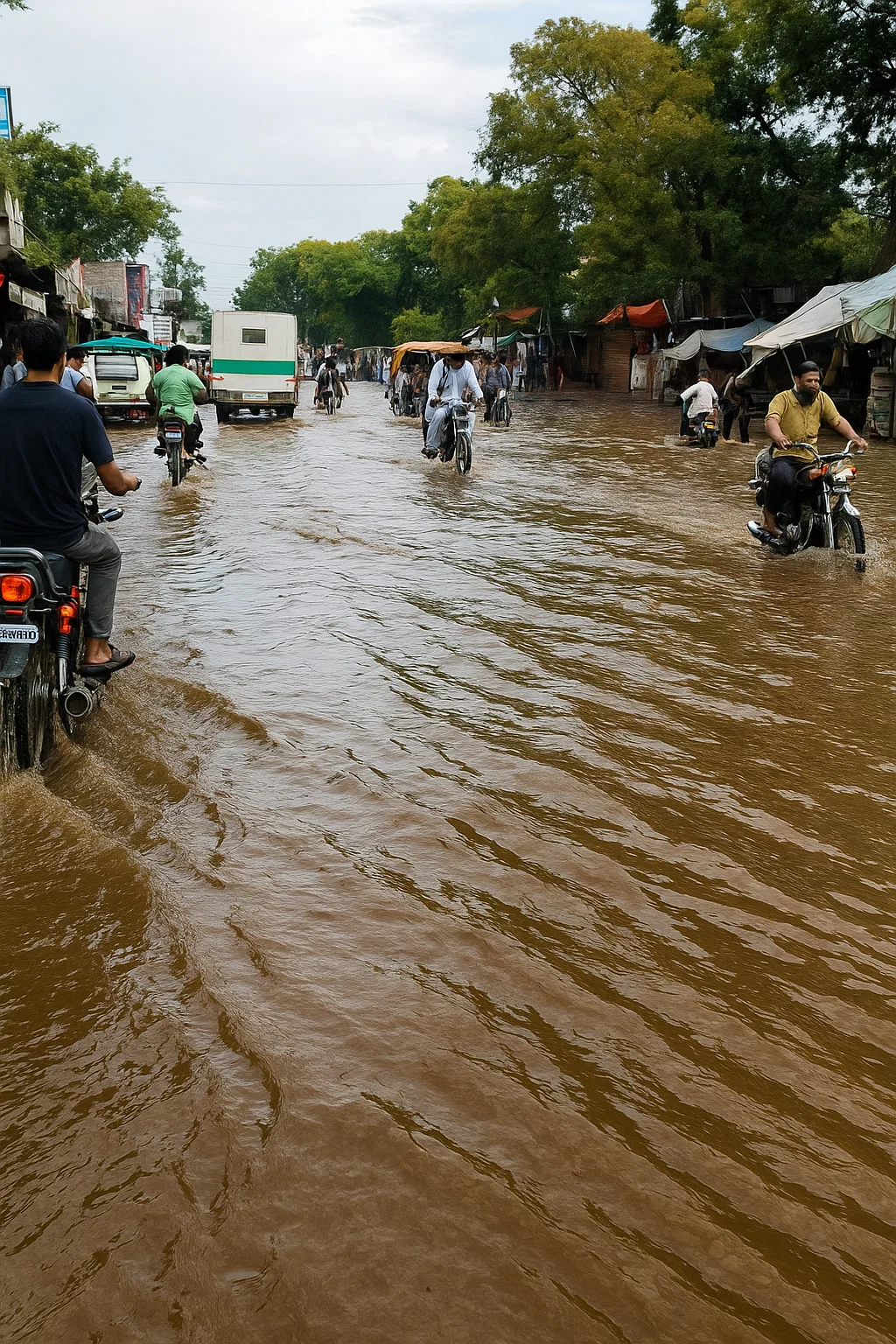Indian Flood Threat Raises Alarms in Pakistan.India has issued a warning to Pakistan about an upcoming flood threat, signaling the first substantial diplomatic contact between the two nations since the May ceasefire. This latest development comes amid already strained relations, and it highlights how natural disasters like floods often transcend political divides, forcing both countries to acknowledge their shared vulnerabilities.
India Issues Flood Threat Warning
According to Pakistan’s Foreign Office (FO), India communicated the flood threat through diplomatic channels instead of the Indus Waters Commission, which is the usual mechanism under the Indus Waters Treaty. The FO confirmed that the message carried serious caution, prompting immediate internal assessments and the mobilization of emergency departments across Punjab and other provinces.
Pakistan noted that while the warning was significant, India’s decision to bypass the Indus Waters Commission raised questions about compliance with international agreements. The Indus Waters Treaty was established precisely to manage water-sharing issues and related crises like a flood threat, making India’s move controversial.
PDMA Mobilizes After Flood Threat
Soon after receiving the communication, Pakistan’s Provincial Disaster Management Authority (PDMA) in Punjab issued a flood threat alert. District administrations were instructed to activate flood monitoring stations, strengthen river embankments, and ensure early warning systems were fully operational. The PDMA also asked local authorities to prepare evacuation plans for vulnerable communities living along riversides.
Officials emphasized that preparedness is essential since the flood threat coincides with the monsoon season, which has already brought above-average rainfall and deadly incidents across the country.
Strained Relations and the Treaty Dispute
The flood threat warning comes at a delicate time in Pakistan–India relations. In May, tensions escalated when 26 people were killed in an attack in Pahalgam. India blamed Pakistan for orchestrating the incident and, in response, announced that it would suspend its participation in the Indus Waters Treaty.
Pakistan rejected India’s move, pointing out that the Treaty contains no provision for suspension or unilateral withdrawal. Islamabad took the matter to the Permanent Court of Arbitration in The Hague, where it won a favourable Supplemental Award in June. The Court reaffirmed that India must honour its obligations, which include sharing data and warnings about any potential flood threat.
READ MORE:
https://freedompakistan.com.pk/sutlej-river-emergency/
Pakistan’s Consistent Position
Pakistan has consistently reminded India that unilateral actions undermine regional stability. Officials in Islamabad stressed that natural disasters like floods should not be politicized. Instead, they argue, the two countries should focus on cooperative mechanisms that can minimize the devastation of a flood threat.
Islamabad’s position is that the Indus Waters Treaty has worked as a critical safeguard for decades and should not be weakened due to political disputes.
Monsoon Devastation Heightens Concerns
This year, Pakistan has already experienced one of the deadliest monsoon seasons in recent history. At least 800 people have died due to flooding, landslides, and related incidents. Infrastructure damage, crop destruction, and widespread displacement have left thousands struggling to rebuild their lives.
With these grim statistics, India’s latest flood threat warning carries additional weight. Emergency teams, volunteers, and NGOs are all bracing for a worst-case scenario where river overflows could submerge entire villages.
Global Attention on Flood Threat
The flood threat has also caught the attention of international observers. Climate experts warn that South Asia’s rivers are increasingly unpredictable due to climate change, deforestation, and poor water management. The situation between Pakistan and India highlights how environmental challenges can worsen political rifts if not handled through established treaties and transparent data-sharing.
International humanitarian agencies have urged both countries to set aside disputes and coordinate joint measures. In their view, cooperation over a flood threat could even serve as a stepping stone toward improving broader bilateral relations.
Humanitarian Perspective
For ordinary people living in flood-prone regions, the flood threat is more than just a diplomatic headline. Families in Punjab, Sindh, and Khyber Pakhtunkhwa are preparing for possible evacuations. Farmers fear the destruction of crops that are already weakened by excessive rains. Traders worry about disrupted supply chains if major highways and railway lines are submerged.
Civil society organizations argue that both Pakistan and India must place human lives above politics. Sharing accurate data about a flood threat could prevent tragedies, save resources, and allow timely responses.
Pakistan’s Response Plan
In response to the flood threat, Pakistan has activated multi-agency coordination involving the National Disaster Management Authority (NDMA), armed forces, and provincial governments. The Water and Power Development Authority (WAPDA) is closely monitoring water levels in rivers and reservoirs.
The government has also requested provincial administrations to set up temporary shelters and stockpile essential supplies, including food, medicine, and clean water.
India’s Calculated Move
Analysts believe that India’s decision to issue a flood threat warning directly, bypassing the Indus Waters Commission, may be politically motivated. While the warning itself is important, its delivery method sends a message that India is willing to use even humanitarian issues as leverage in diplomatic disputes.
Some experts argue that this selective approach could undermine trust and worsen tensions, making future cooperation over shared resources more difficult.
The Road Ahead
Looking forward, both sides must decide whether they want to continue politicizing natural disasters or treat them as opportunities for cooperation. A flood threat is not limited by borders—it affects people, infrastructure, and economies across the region.
Pakistan has emphasized that its priority remains protecting its citizens, but it also expects India to respect international obligations. Unless both countries establish reliable channels of communication, every flood threat in the future could trigger fresh diplomatic controversies rather than collective solutions.
Conclusion
The latest flood threat warning from India has put Pakistan on high alert. While emergency departments prepare for possible devastation, the political undertones of the warning cannot be ignored. The situation highlights the urgent need for both nations to separate humanitarian concerns from political disputes.
Ultimately, addressing a flood threat should be about saving lives, not scoring diplomatic points. Whether India and Pakistan can rise above their long-standing rivalry remains to be seen, but the stakes for millions of ordinary people could not be higher.



